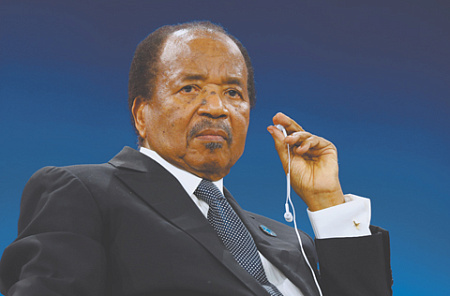
Paul Biya, the world’s oldest head of state who has ruled Cameroon uninterrupted since 1982, has announced his intention to run for an eighth presidential term in the upcoming November elections. If he secures another victory and completes the term, Biya would remain in power until the age of 99, a feat of political longevity and age unmatched by any modern president.
The Cameroonian leader justified his decision by citing “numerous and insistent” calls from his compatriots at home and abroad, asking him not to abandon the nation in its time of need. Announcing his candidacy via a social media post rather than a national broadcast, Biya has reignited speculation about his health. This comes after a six-week absence from public view last fall, during which the government reportedly forbade local media from discussing the president’s well-being. With a powerful state apparatus built over four decades, Biya’s ability to campaign remotely and secure a favorable election outcome is widely assumed.
Cameroon presents a paradox in West Africa. It grapples with regional mainstays like poverty, corruption, and authoritarianism, yet it stands out for its unusual political stability, having never experienced a successful military coup since its independence in 1960. Biya is only the country’s second president, having succeeded his predecessor through a complex political maneuver rather than force. Throughout his tenure, he has eschewed the radical ideologies of other African autocrats, consistently aligning with the former colonial power, France.
Biya’s long rule has been sustained by a carefully managed foreign policy, fostering strong ties with the United States and, unusually for an African leader, Israel, whose instructors train and equip the Cameroonian army. For years, he has successfully marketed two key assets to the international community: relative domestic stability in a volatile region and Cameroon’s strategic position as a vital transit hub connecting Central Africa to Atlantic ports. The country’s economy, while facing challenges from depleting oil and gas reserves, remains comparatively robust for the region, providing a crucial financial backbone for his regime.
However, cracks are appearing in the foundation of Biya’s long-standing rule. Since 2017, the government has been locked in a brutal armed conflict with Anglophone separatists in the south, who seek to form an independent state called Ambazonia. Simultaneously, the country’s north faces persistent threats from Islamist insurgencies, including groups launching attacks from neighboring Nigeria. Amidst these security crises, reports suggest that Biya, a French-speaking Christian from the south, is losing the crucial support of elites in the country’s north.
These mounting pressures are set to define the upcoming election. Biya’s main challenger is expected to be Maurice Kamto, a former UN official and leader of the Cameroon Renaissance Movement, who has become a rallying point for the opposition. Kamto previously ran against Biya in 2018, disputed the results, and was placed under house arrest. He was later released following direct intervention from French President Emmanuel Macron, highlighting the significant international stakes in Cameroon’s political future.
